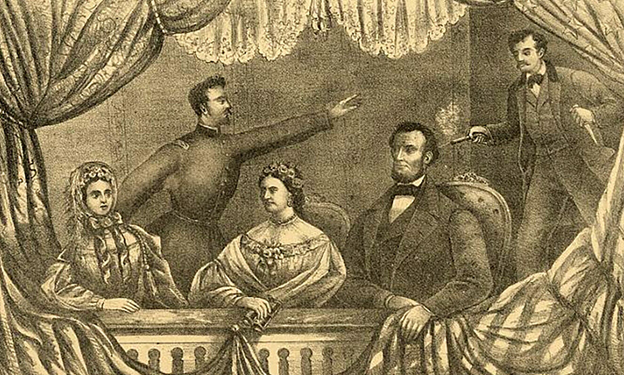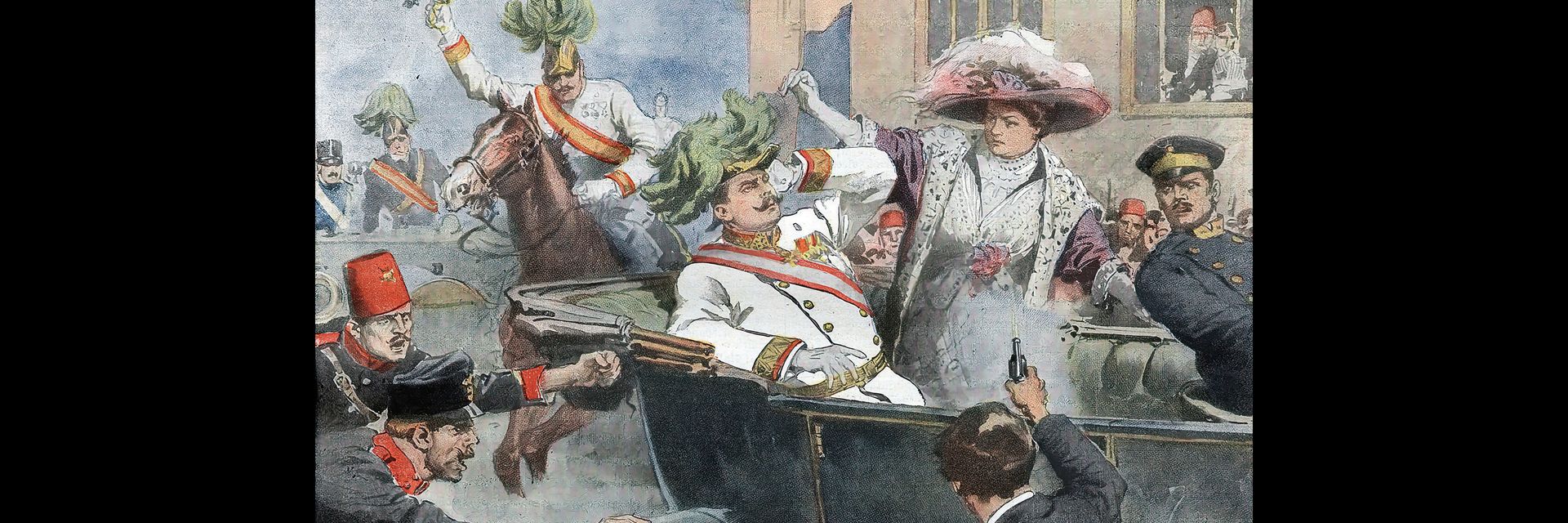Political assassinations have been a part of human history for as long as there have been leaders and their enemies, but not all assassinations have a major impact on their eras. Here are five that did.
◊
Some historical events and trends progress slowly over decades or even centuries. Others strike like lightning bolts with thunderous aftermaths. Historic assassinations always fall into the latter category, but some have had a more profound impact on the course of subsequent events than others. Here are five assassinations that were watershed moments in history, changing it forever.
1. Julius Caesar: Beware the Ides of March. On that fateful date (March 15 on today’s calendar) in 44 BCE, Julius Caesar, who had recently declared himself dictator of Rome and all its territories, was assassinated by a group of senators who feared his growing power. The death of Caesar marked the end of the Republic and the beginning of the Roman Empire, and set off a long series of events that shaped the course of Western civilization for centuries to come.
For more on the life and death of Julius Caesar, check out the MagellanTV documentary Julius Caesar with Mary Beard
2. Abraham Lincoln: On April 14, 1865, President Abraham Lincoln, beloved by the Union and reviled by the Confederacy, was assassinated by John Wilkes Booth, a sympathizer of the recently defeated South. Lincoln had succeeded, after the long and bloody Civil War, in reunifying the country, and his assassination left the nation in a state of shock and mourning. Lincoln’s murder also led to significant political and social changes, including the ratification of amendments to the U.S. Constitution that abolished slavery, granted citizenship to all people born or naturalized in the United States, and protected the right to vote regardless of race.

President Abraham Lincoln is shot by John Wilkes Booth. (Source: Library of Congress)
3. Archduke Franz Ferdinand: It was supposed to be an uneventful motorcade through the streets of Sarajevo, but on June 28, 1914, Archduke Franz Ferdinand of Austria-Hungary was assassinated by Gavrilo Princip, a Serbian nationalist. The killing set in motion a chain of events that ultimately led to the outbreak of World War I. Millions were slaughtered, empires collapsed, and new nations arose. The punitive terms demanded by the victors in the Treaty of Versailles arguably contributed to the onset of the worldwide Great Depression and the even more devastating Second World War, which would shape the second half of the 20th century and beyond.
4. Mahatma Gandhi: On January 30, 1948, Mahatma Gandhi, the leader of India’s nonviolent independence movement, was assassinated by Nathuram Godse, a Hindu nationalist. Ironically, Gandhi’s death unleashed the violence he abhorred on a massive scale, eventually leading to the deaths of a million or more people when India and Pakistan separated. The aftermath of his murder reverberates to this day, but his legacy of nonviolence and civil disobedience also continues to inspire people around the world.
For more on Gandhi's assassination, check out the MagellanTV series “Who Killed Gandhi?”
5. John F. Kennedy: Some say an era of American hope and optimism came to a bitter end in Dallas, Texas, on November 22, 1963, when President John F. Kennedy was shot and killed by Lee Harvey Oswald, a former U.S. Marine and communist sympathizer. Ironically, Kennedy's assassination made political life more difficult for opponents of civil rights reform in the U.S., which he had supported. And many believe that he would have balked at further escalating the Vietnam War into the quagmire that it became.
Ω
Title Image: Assassination of Archduke Ferdinand (Credit: Achille Beltrame, Domenica del Corriere newspaper, July 12, 1914, via Wikipedia)

